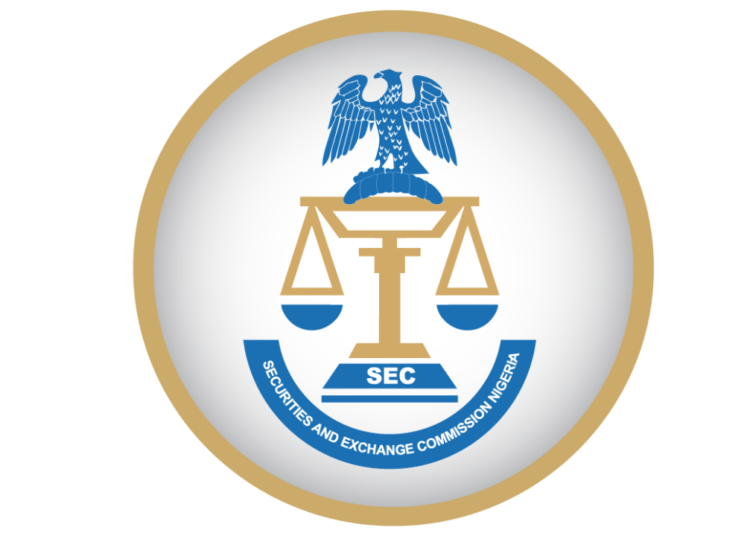The director general of the Securities and Exchange Commission (SEC), Dr. Emomotimi Agama has expressed the need for stakeholders to adapt regulatory frameworks to align with the evolving Financial Action Task Force, (FATF), standards saying that failure to do so would not only jeopardise the integrity of the capital markets, but also pose a risk to Nigeria and the global financial system.
Dr. Agama stated this at the Compliance Summit 2024 organised by the Nigerian Capital Market Institute, a subsidiary of the SEC, with the theme: Navigating Regulatory Challenges: Aligning with Changes in FATF Standards in the Era of Virtual Asset Service Providers held in Lagos, Monday.
FATF guidance helps countries implement effective regulations, addressing risks associated with virtual assets.
Agama said as virtual assets continue to gain prominence, navigating regulatory challenges in the space requires proactive engagement with FATF standards adding that collaboration between regulators, VASPs and stakeholders ensures effective implementation.
Dr. Agama said the event is a testament to the collective commitment by stakeholders to ensuring that the Nigerian capital market remains at the vanguard of global financial integrity and efficiency, while fostering an environment conducive to progress and innovation.
He disclosed that the rapid evolution of virtual assets and the emergence of the related service providers have brought considerable changes to the financial landscape, creating opportunities and, invariably, carrying with it untold regulatory challenges that necessitate our immediate and appropriate attention.
According to him, “During this summit, we will explore critical topics such as the unique regulatory implications posed by virtual assets service providers, the importance of compliance in safeguarding our markets, and strategies for implementing effective risk management protocols. We will be graced with presentations and discussions on these issues from leading experts and professionals, who will share their insights and experiences on industry best practice and regulatory developments”.
The SEC DG said the Summit serves as a platform for all stakeholders—regulators, operators, financial institutions, and technology innovators—to collaborate, share knowledge and chart the way forward as may be collectively desirable adding that all must therefore harness the strength of collective expertise to navigate the regulatory challenges ahead.
He said some recent changes in FATF standards significantly impact virtual asset service providers and these key updates include: Expanded VASP definition: Custodial wallet providers, exchanges and peer-to-peer platforms are now recognised as VASPs, Travel Rule: VASPs must share customer information during transactions, enhancing transparency, Licensing and registration: VASPs must register and obtain licences, ensuring accountability and Enhanced AML/CFT measures: Strengthened regulations combat money laundering and terrorist financing.
He said “As we explore this critical issue that is shaping the financial landscape, we will delve into the evolving landscape of virtual assets, FATF’s role in regulation and key changes in its standards. The rise of virtual assets has transformed financial services, offering unparalleled opportunities. However, this growth also presents regulatory challenges. Governments and regulatory bodies strive to balance innovation with risk management, ensuring financial stability and security.
“Let us work together to foster regulatory clarity, promote innovation and enhance global cooperation. Embracing FATF standards strengthens trust and stability in virtual asset markets. Together, we shape the future. By working together, we can build resilient systems that promote transparency, accountability, and sustainable growth in our capital markets.
“Thank you for your dedication and your presence here today. Together, let us commit to fostering a resilient and compliant capital market that meets global standards and supports Nigeria’s economic growth” he added.
Established in 1989, the Financial Action Task Force (FATF) sets global standards for combating money laundering, terrorist financing and proliferation financing. FATF has been instrumental in establishing international standards to combat money laundering, terrorist financing, and other financial crimes. FATF guidance helps countries implement effective regulations, addressing risks associated with virtual assets.
In a goodwill message, director/ CEO for Nigerian Financial Intelligence Unit (NFIU), Hafsat Bakari said as Nigeria continues to experience the transformative impact of virtual assets on the financial landscape, the nation is also reminded of the accompanying risks particularly in the areas of money laundering, terrorist financing and other illicit activities.
She said, “The rise of VASPs has necessitated not only a rethinking of our regulatory strategies but also the adoption of more dynamic technology-driven approaches in the fight against financial crimes. As regulators, law enforcement agencies, financial institutions and stakeholders in the fight against financial crime, we must ensure our regulatory frameworks remain robust and effective.
Represented by Dr. Mohammad Jiya, chief operating officer, Emerging Technologies and Innovations, NFIU, Bakari said FATF has recently update its standards to include virtual assets and VASPs within the Anti-Money Laundering, Combating the Financing of Terrorism and Combating
Proliferation Financing, AML/CFT/CPE compliance framework adding that in Nigeria, this requires continuous efforts to strengthen the regulatory environment to ensure that the challenges posed by these emerging financial products and services are effectively tackled.
“It is important to put necessary measures in place for the next Mutual Evaluation of the country’s AML/CFT/CPE Regime by FATF which is scheduled to take place in 2027. Virtual Assets, cryptocurrency related activities and VASPs will take the centre stage of the Mutual Evaluation because of the country’s position in the Global Cryptocurrency adoption index
“NFIU remains fully committed to collaborating with all stakeholders l, including the SEC, financial institutions, and law enforcement agencies, to enhance the effectiveness of our AML/CFT systems,” she added





